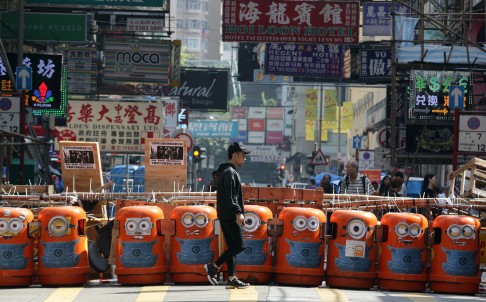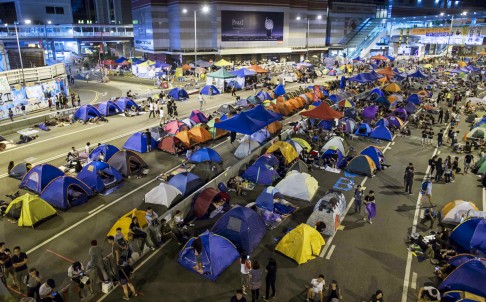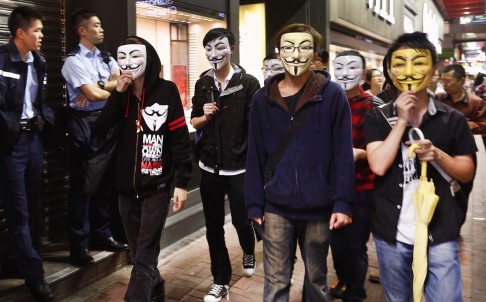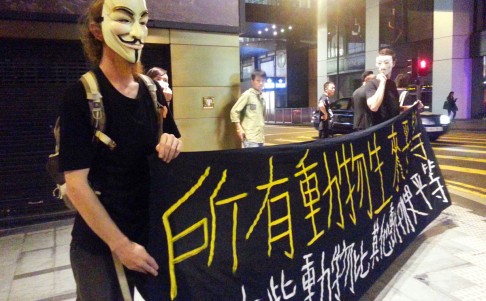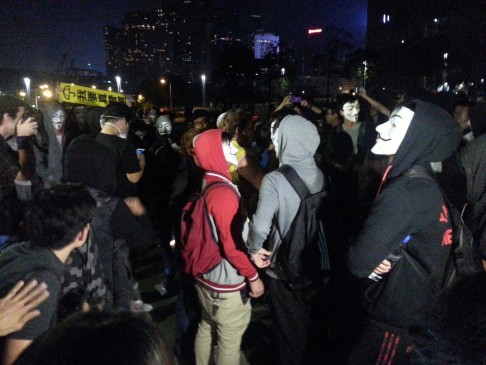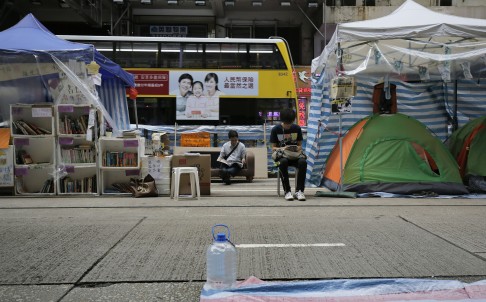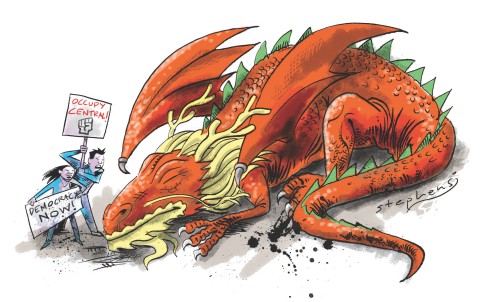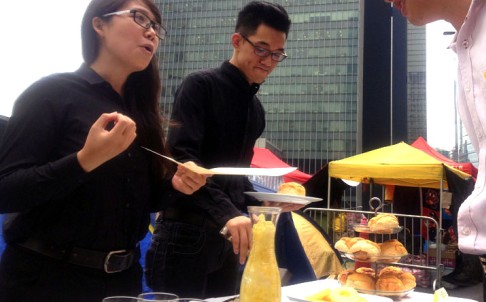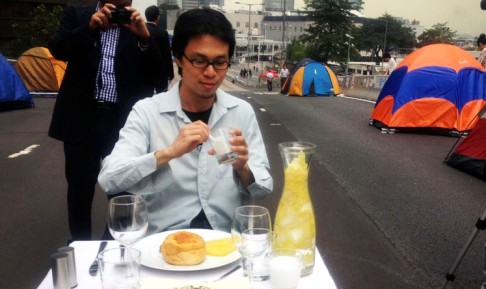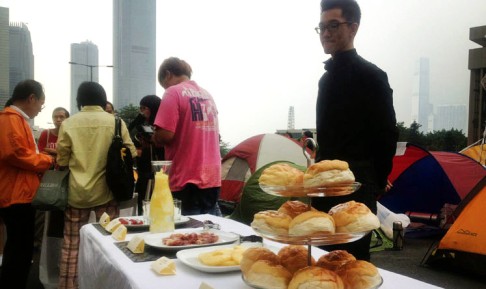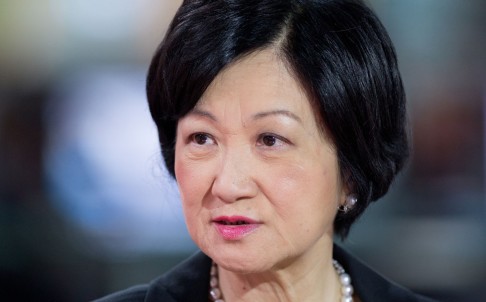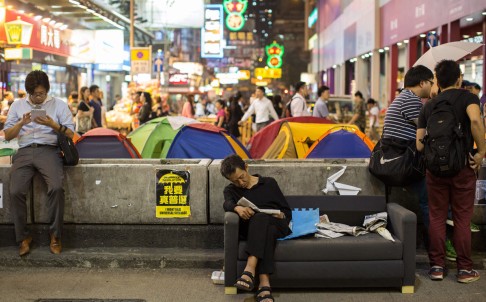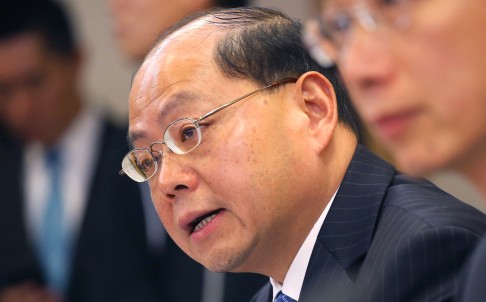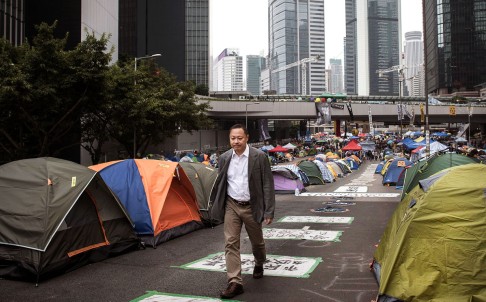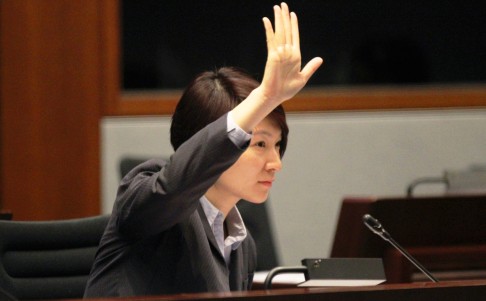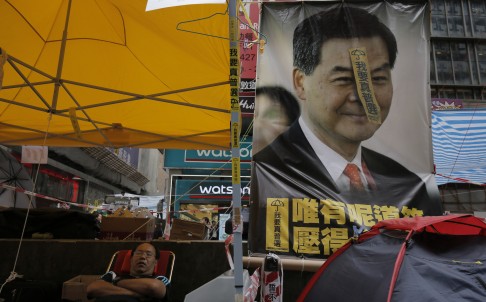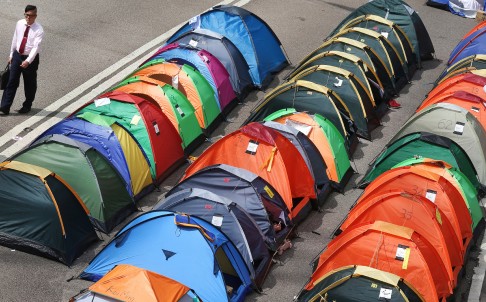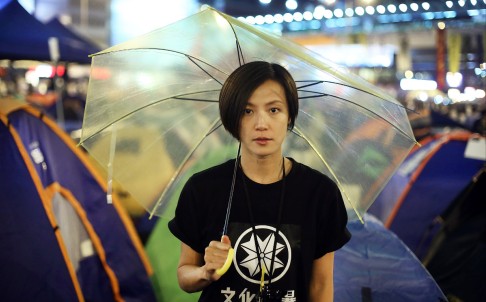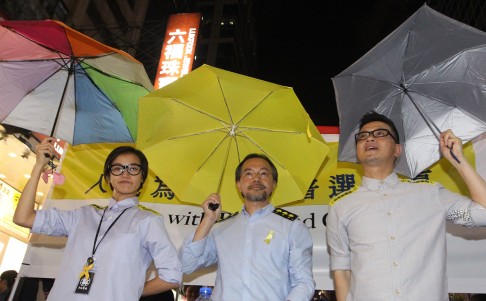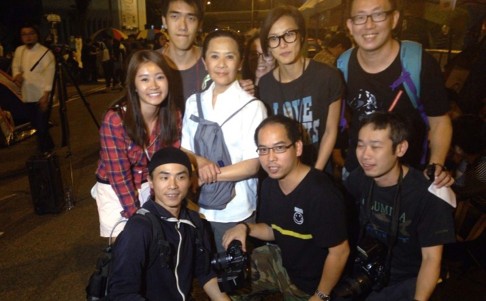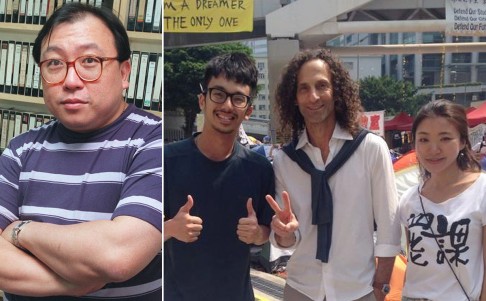Re: 'i'll just make lesser then': Chow yun-fat responds to prc ban for supporting hk
Leave now and protesters’ hard work will have come to nothing, says Joshua Wong
PUBLISHED : Wednesday, 05 November, 2014, 4:19pm
UPDATED : Wednesday, 05 November, 2014, 6:47pm
Lai Ying-kit, Ernest Kao and Alan Yu
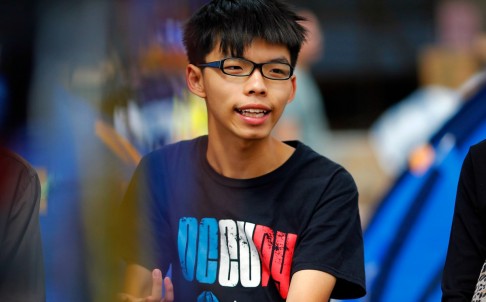
Joshua Wong has helped drive the protests with rousing speeches in Admiralty. Photo: Reuters
Student leader Joshua Wong Chi-fung says now is not the time for Hong Kong’s democracy protesters to withdraw from main roads around the city, after a new poll found almost three in four people think the demonstrations should end.
Wong told Commercial Radio that staying on the streets was the only way to keep pressure on the central government in Beijing to withdraw its decision to tightly control the election of the territory’s next leader.
The 18-year-old convenor of the group Scholarism rejected suggestions that protesters should leave protest camps for now and return when the local government offers its official plan for the chief executive election.
“With the same method [occupation], same turnout, I can’t see any chance the government will retract the proposal at that stage,” Wong said.
A recent Polytechnic University poll found that 73.2 per cent of 554 respondents agreed that protesters should end their blockades now.
But almost 40 per cent of respondents said beleaguered Chief Executive Leung Chun-ying and his government should be held responsible for the pro-democracy protests, now in their sixth week.
Asked who has the power to end the protests, 35.7 per cent of respondents said Leung and his government, while just 3 per cent thought the protesters could.
Less than a third of respondents said the responsibility for the street blockades lay with the three founders of Occupy Central, the group which initially helped to plan the protest before student organisers took the lead.
Just 9.5 per cent laid the blame with the Federation of Students and Scholarism, while less than 6 per cent of respondents said the central government and the national legislature should be held responsible.
Almost 35 per cent of respondents think no one can end the protests now.
As student leaders plan to send a delegation to Beijing in a bid to meet central government officials, Wong said that the ongoing protests could keep the representatives safe.
“With protesters remaining, Beijing will not do things arbitrarily to our student delegation,” he said.
He agreed that prolonged blockades would make the Occupy movement lose public support, and said the campaign needed to go further than road blockades to sustain momentum.
One option would be triggering by-elections in the Legislative Council which could act as a referendum on the issue, said Wong.
“The morale is still high in the protest sites. We have 2,000 tents in Admiralty at present,” he said. “We have put so much effort in. If we leave now, our hard work will have come to nothing.”
Wong dismissed a proposal floated by the leader of the city’s largest pro-Beijing party. Tam Yiu-chung, chairman of the Democratic Alliance for the Betterment and Progress of Hong Kong, had offered to arrange a meeting between students and central government officials on the condition that protesters end their street blockades now.
“It is exactly because our protests are continuing that the government feels the urge to respond to us,” Wong said, adding that there could be no positive outcome to any meeting under those conditions.
In Mong Kok, people reflected on the new poll's findings. Anson Cheung, 21, a business student, said efforts were being made to explain the ongoing protest to people living in the area. "We know for a fact many people support the fight for real universal suffrage but we also don’t deny it has inconvenienced many people," she said. "But the government is not budging and not sincere so we have no choice but to sit here.”
IT technician George Leung, 27, said: "It's like someone being raped who is screaming and resisting and then a survey is carried out asking people if the victim has been screaming for too long. The government...should respond to public demands."
Music student Lau Man-hei, 22, said the more important aspect of the survey was that many people agreed that it was the government who should bear responsibility for the protests.
Rachel Siu, 33, an administrative assistant, said she initially supported the movement. "But I think it’s getting to the point where many other people are finding it inconvenient and pointless," Siu said. "The government won’t budge. [The protesters] should either retreat or move back to Admiralty if they still want to keep public support."
One man, Mr Ho, who works in the area, said the protesters should not ignore the opinion of the majority."This is ridiculous. If this was the era of Deng Xiaoping, or if he was still alive, they would have cleared the area out ages ago," he said.
Leave now and protesters’ hard work will have come to nothing, says Joshua Wong
PUBLISHED : Wednesday, 05 November, 2014, 4:19pm
UPDATED : Wednesday, 05 November, 2014, 6:47pm
Lai Ying-kit, Ernest Kao and Alan Yu

Joshua Wong has helped drive the protests with rousing speeches in Admiralty. Photo: Reuters
Student leader Joshua Wong Chi-fung says now is not the time for Hong Kong’s democracy protesters to withdraw from main roads around the city, after a new poll found almost three in four people think the demonstrations should end.
Wong told Commercial Radio that staying on the streets was the only way to keep pressure on the central government in Beijing to withdraw its decision to tightly control the election of the territory’s next leader.
The 18-year-old convenor of the group Scholarism rejected suggestions that protesters should leave protest camps for now and return when the local government offers its official plan for the chief executive election.
“With the same method [occupation], same turnout, I can’t see any chance the government will retract the proposal at that stage,” Wong said.
A recent Polytechnic University poll found that 73.2 per cent of 554 respondents agreed that protesters should end their blockades now.
But almost 40 per cent of respondents said beleaguered Chief Executive Leung Chun-ying and his government should be held responsible for the pro-democracy protests, now in their sixth week.
Asked who has the power to end the protests, 35.7 per cent of respondents said Leung and his government, while just 3 per cent thought the protesters could.
Less than a third of respondents said the responsibility for the street blockades lay with the three founders of Occupy Central, the group which initially helped to plan the protest before student organisers took the lead.
Just 9.5 per cent laid the blame with the Federation of Students and Scholarism, while less than 6 per cent of respondents said the central government and the national legislature should be held responsible.
Almost 35 per cent of respondents think no one can end the protests now.
As student leaders plan to send a delegation to Beijing in a bid to meet central government officials, Wong said that the ongoing protests could keep the representatives safe.
“With protesters remaining, Beijing will not do things arbitrarily to our student delegation,” he said.
He agreed that prolonged blockades would make the Occupy movement lose public support, and said the campaign needed to go further than road blockades to sustain momentum.
One option would be triggering by-elections in the Legislative Council which could act as a referendum on the issue, said Wong.
“The morale is still high in the protest sites. We have 2,000 tents in Admiralty at present,” he said. “We have put so much effort in. If we leave now, our hard work will have come to nothing.”
Wong dismissed a proposal floated by the leader of the city’s largest pro-Beijing party. Tam Yiu-chung, chairman of the Democratic Alliance for the Betterment and Progress of Hong Kong, had offered to arrange a meeting between students and central government officials on the condition that protesters end their street blockades now.
“It is exactly because our protests are continuing that the government feels the urge to respond to us,” Wong said, adding that there could be no positive outcome to any meeting under those conditions.
In Mong Kok, people reflected on the new poll's findings. Anson Cheung, 21, a business student, said efforts were being made to explain the ongoing protest to people living in the area. "We know for a fact many people support the fight for real universal suffrage but we also don’t deny it has inconvenienced many people," she said. "But the government is not budging and not sincere so we have no choice but to sit here.”
IT technician George Leung, 27, said: "It's like someone being raped who is screaming and resisting and then a survey is carried out asking people if the victim has been screaming for too long. The government...should respond to public demands."
Music student Lau Man-hei, 22, said the more important aspect of the survey was that many people agreed that it was the government who should bear responsibility for the protests.
Rachel Siu, 33, an administrative assistant, said she initially supported the movement. "But I think it’s getting to the point where many other people are finding it inconvenient and pointless," Siu said. "The government won’t budge. [The protesters] should either retreat or move back to Admiralty if they still want to keep public support."
One man, Mr Ho, who works in the area, said the protesters should not ignore the opinion of the majority."This is ridiculous. If this was the era of Deng Xiaoping, or if he was still alive, they would have cleared the area out ages ago," he said.

